Hawaii’s Plantation Village
The first successful Hawaiian sugar plantation was set up at Koloa on Kauai in 1835. By the 1840s the California Gold Rush was fuelling demand for sugar and the Land Division Act of 1848 allowed Hawaiians to be displaced form their land to create sugar plantations. After the US removed import tariffs on Hawaiian sugar in 1875, the plantations boomed. The production of sugar was very labour intensive but the native Hawaiian population had been ravaged by diseases brought by foreigners and many Hawaiians preferred to stick to traditional types of work instead of long hours and heavy labour on the plantations. The solution was to bring in labour from abroad. The Chinese were the first to arrive but later workers would be recruited form the Portuguese Islands, Japan, Puerto Rico, Okinawa, Korea and the Philippines. Unmarried plantation workers were typically housed in dormitories but married workers were given houses on the plantation with each nationality adapting their house to suit their native culture. Hawaii’s Plantation Village is an outdoor museum that recreates a plantation village between 1850 and 1950 including the houses of the many different cultures that worked on the plantations.
Chinese Cookhouse
The Chinese rarely intermarried with other cultures, ensuring that their culture remained true to their homeland. Communal cooking was normal in plantations, but a communal kitchen would often be tailored to suit the nationality of the workers. Click Tab 2 to see a Chinese Temple.
Portuguese House
This is a typical house occupied by a Portuguese worker dating from 1918. Out side is a Portuguese oven (Forno in Portuguese).
Hawaii's Plantation Village & former Sugar Mill Chimney, Waipahu
Hawaii’s Plantation Village is located in the former sugar town of Waipahu just 24 kilometres (15 miles) from downtown Honolulu. On display are restored and replica buildings from the plantation era including 25 plantation homes that reflect the Hawaiian, Chinese, Portuguese, Puerto Rican, Japanese, Korean, and Filipino cultures of the workers. On your journey through the village you are accompanied by a tour guide and the tour is supposed to last for an hour. There is so much to see and so much information to absorb that our tour lasted much longer.
Puerto Rican House
The Puerto Rican house dates back to the early 1900s when after centuries of Spanish rule their homeland had recently become US territory.
DLU160726
Click on Minimap to navigate
Japanese Bedroom
The Japanese came to Hawaii in large numbers and by 1920 43% of the population of Hawaii was Japanese or of Japanese descent. Many intermarried with local people or other immigrant cultures so while many modern day Hawaiians have some Japanese ancestry, the percentage of Japanese in the population has fallen to 16.7%. This Japanese duplex house dates back to 1910. Click Tab 2 to see a Japanese Tofu Kitchen.
Korean House
You will notice that all of the houses look much the same inside and out, yet their occupants managed to use furnishings to recreate their culture. This Korean house is from 1919.


To move forwards or backwards through the Oahu Trail click the arrows above, or select your next destination on the Minimap.
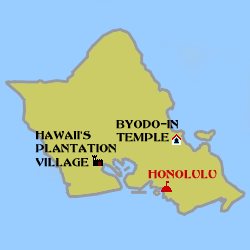

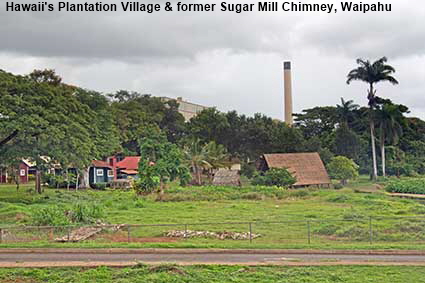
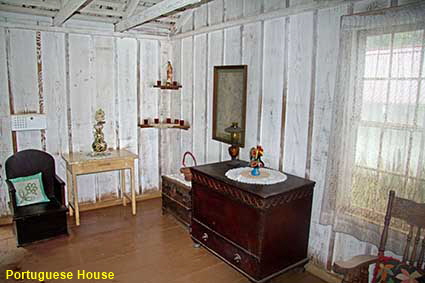
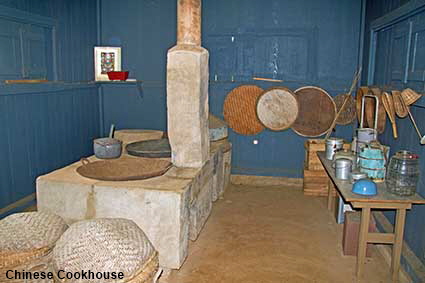
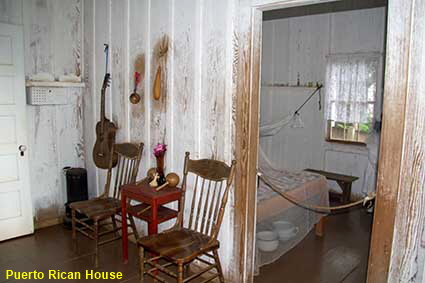
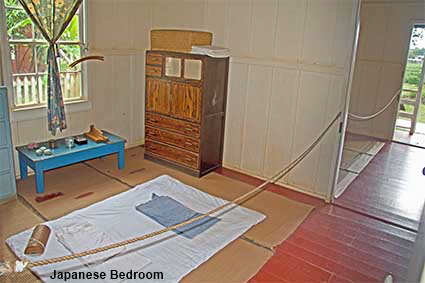
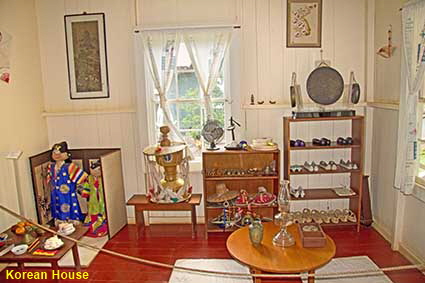
© Mike Elsden 1981 - 2025
The contents of this page may not be reproduced in full or in part without permission